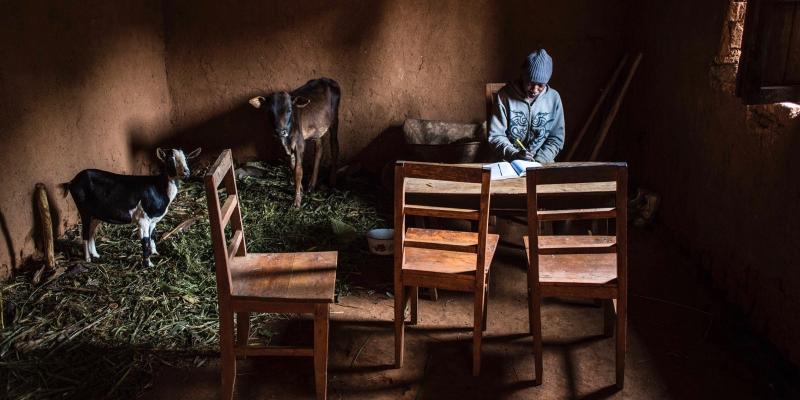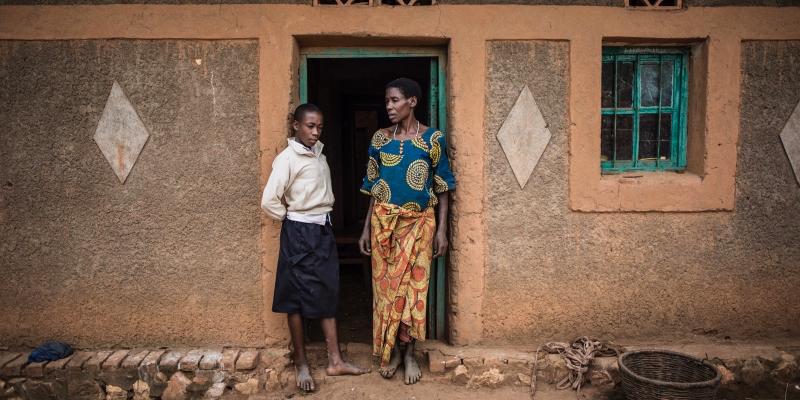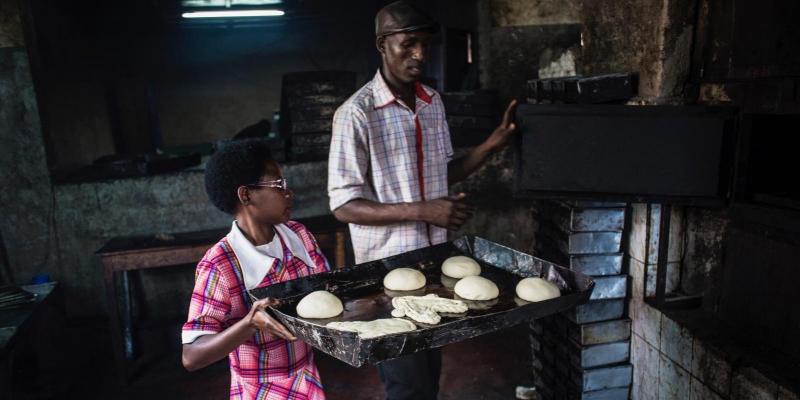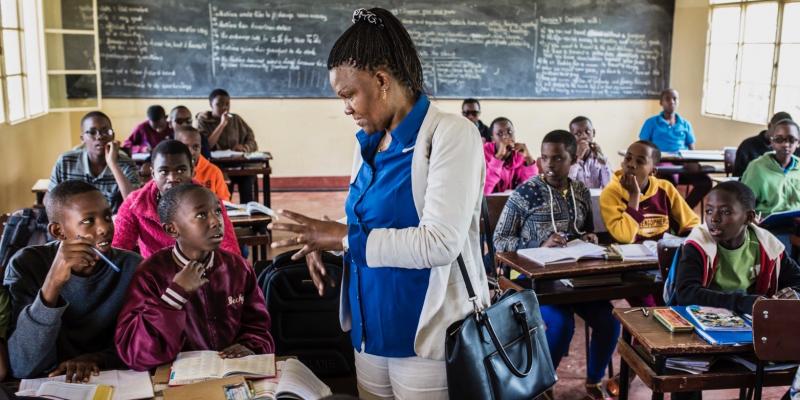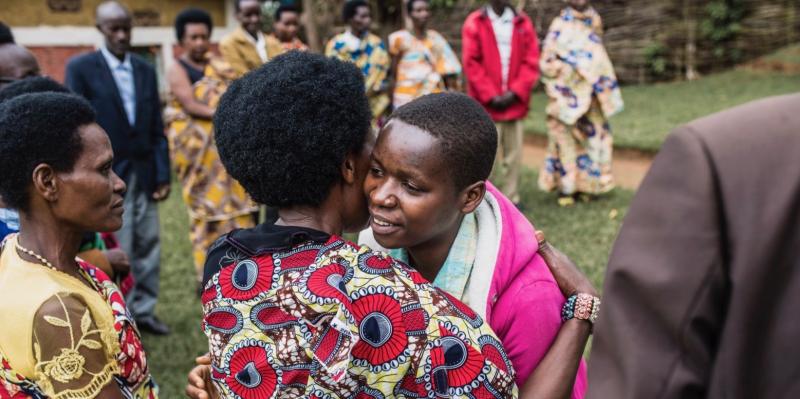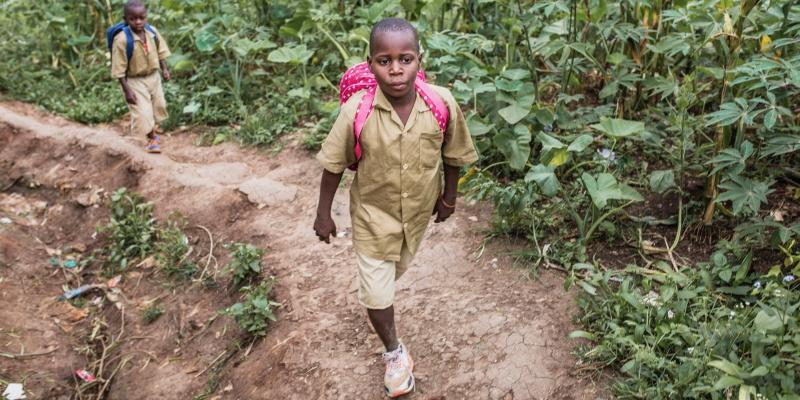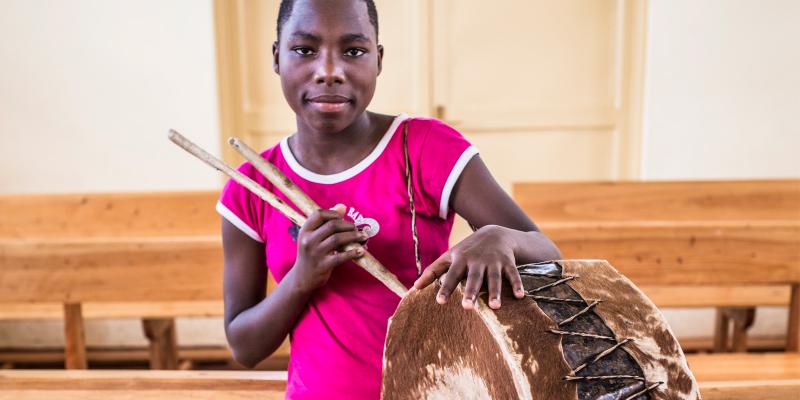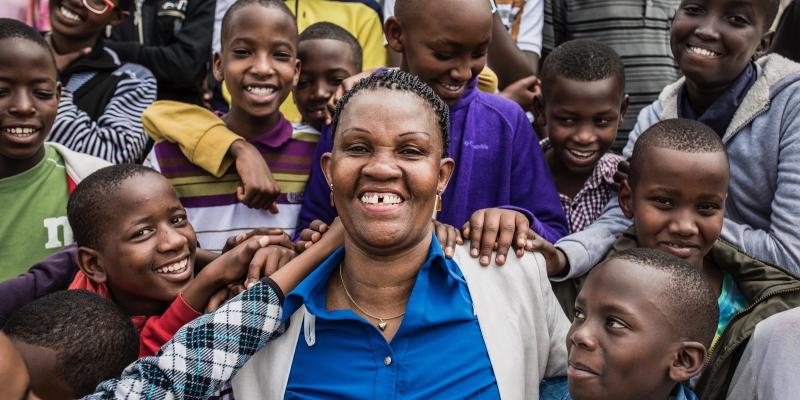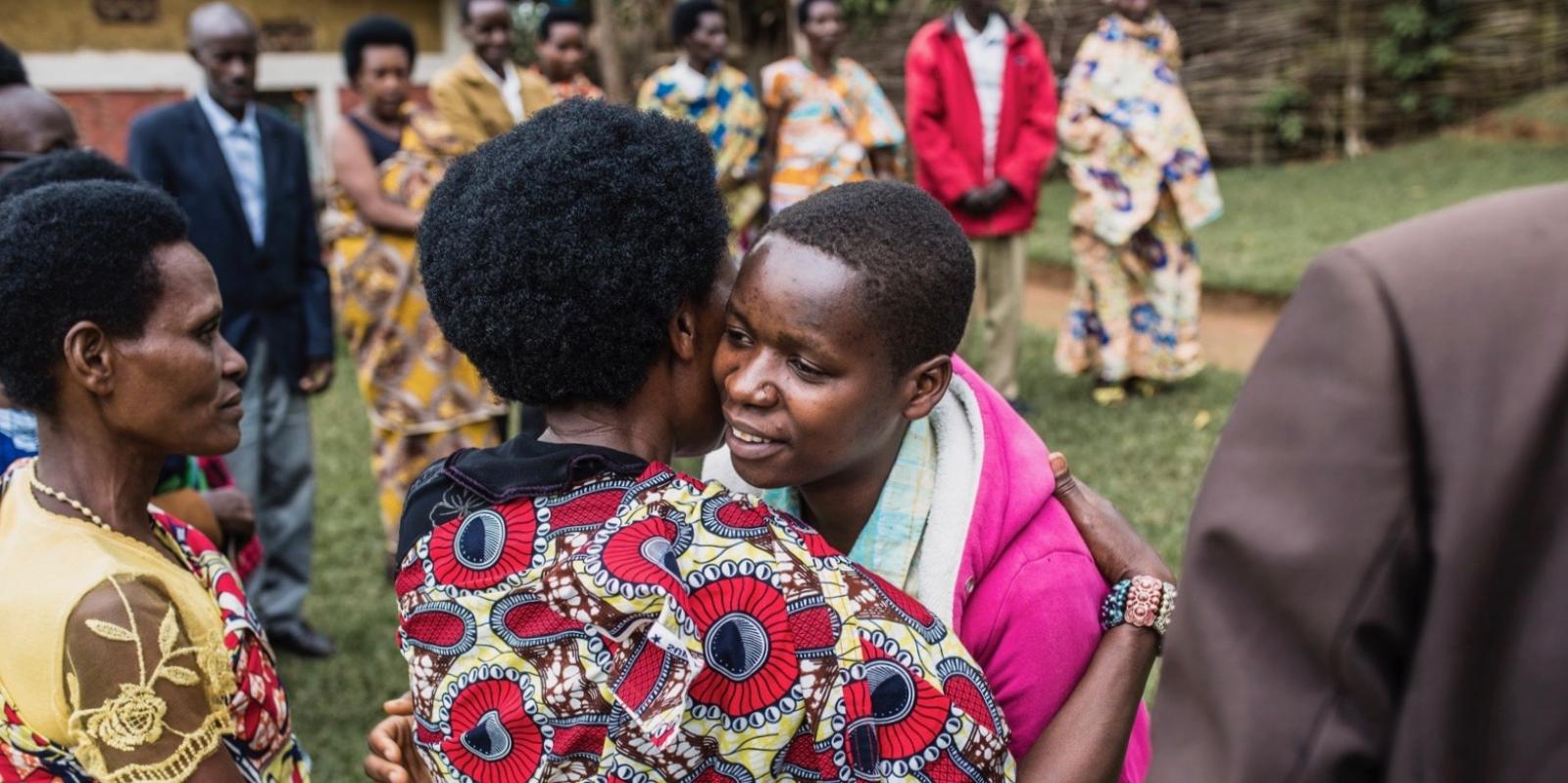
Floriane’s mum has always been ill and her dad works a lot. Floriane and her siblings have had to help so much at home that they’ve barely had time to go to school. But one day Floriane got her big chance. The village solidarity group helped her get a place at FVS Amade’s boarding school for poor children.
Floriane always finds coming home difficult. The life she has at school is so different to the way things are at home. She loves seeing her dad and siblings, but she feels sad when her mum isn’t home. She’s been ill for as long as Floriane can remember.
When Floriane still lived at home and went to the village school, her mum was sometimes at home in the morning, but then she’d be gone for several days. Then she’d suddenly be at home again. When Floriane would ask where she’d been, she'd just say she’d been to visit friends.
Her mum was kind and laughed a lot, but she didn’t work and wasn’t very good at taking care of the children. Spés and FVS Amade helped arrange for her to be admitted to a psychiatric clinic, which is where she is now. Floriane hopes her mum will be well enough to come home again some time.
Helped by the villagers
Floriane’s dad is old. He doesn’t have much land of his own and he works for others in their fields. The house they live in is made of brown mud. They used to have an old house, but it collapsed.Floriane’s dad was given money by the village’s solidarity group to build a new house. Flori-ane’s parents aren’t part of the group, but they were given help anyway because Floriane’s mum is sick and her dad is poor.
Her dad sold a calf to buy tin for the roof of their new house. They’ve also built a little barn for the family’s cow and a new calf to sleep in at night. Next to the house, Floriane and her siblings have been growing sweet potatoes.
As a thank-you for all the help, Floriane usually assists at the solidarity group meetings. She loves maths and finance, and she makes notes in the group’s cashbook.
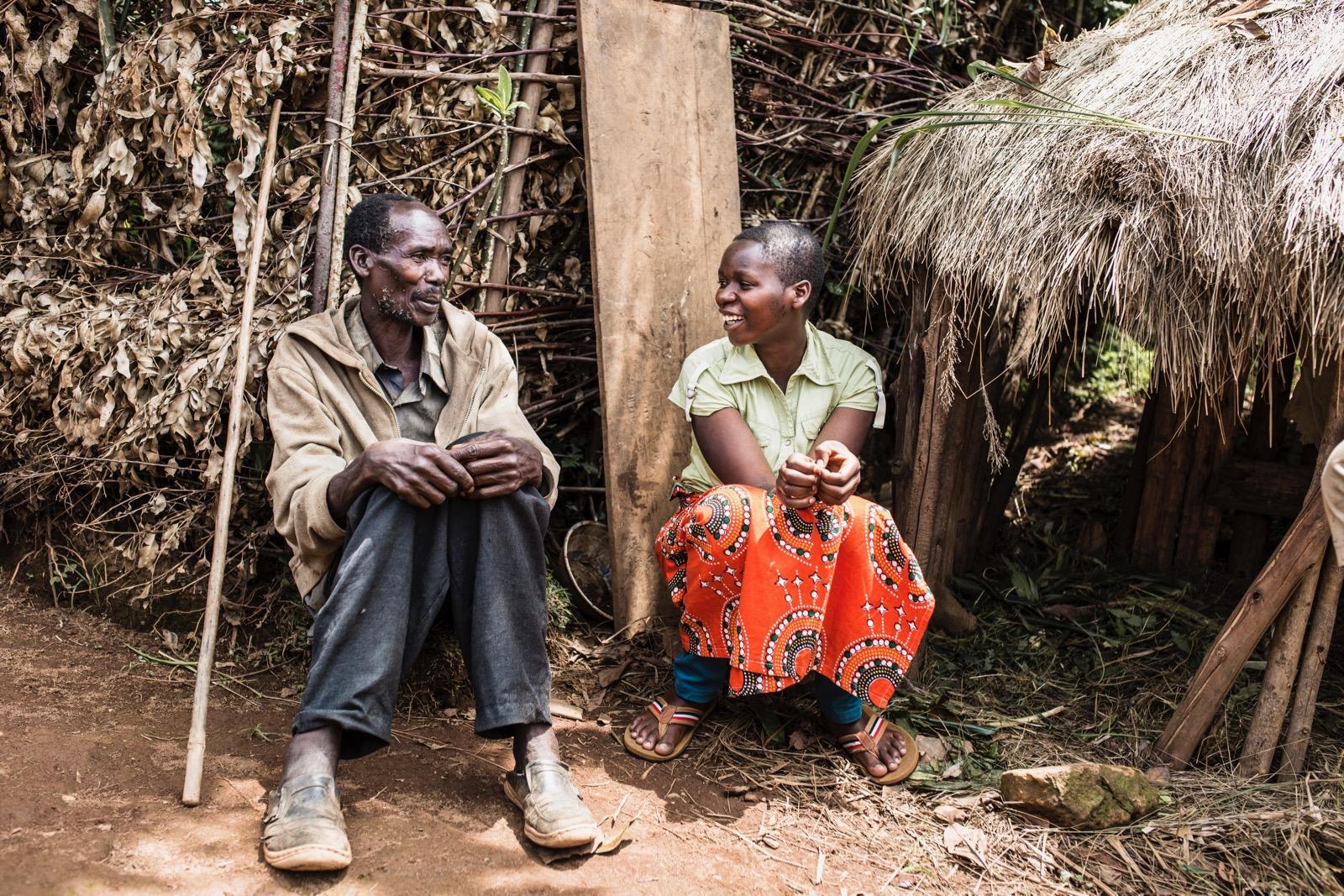
Floriane’s mum is ill and her dad is poor. That’s why the solidarity group has helped the family.
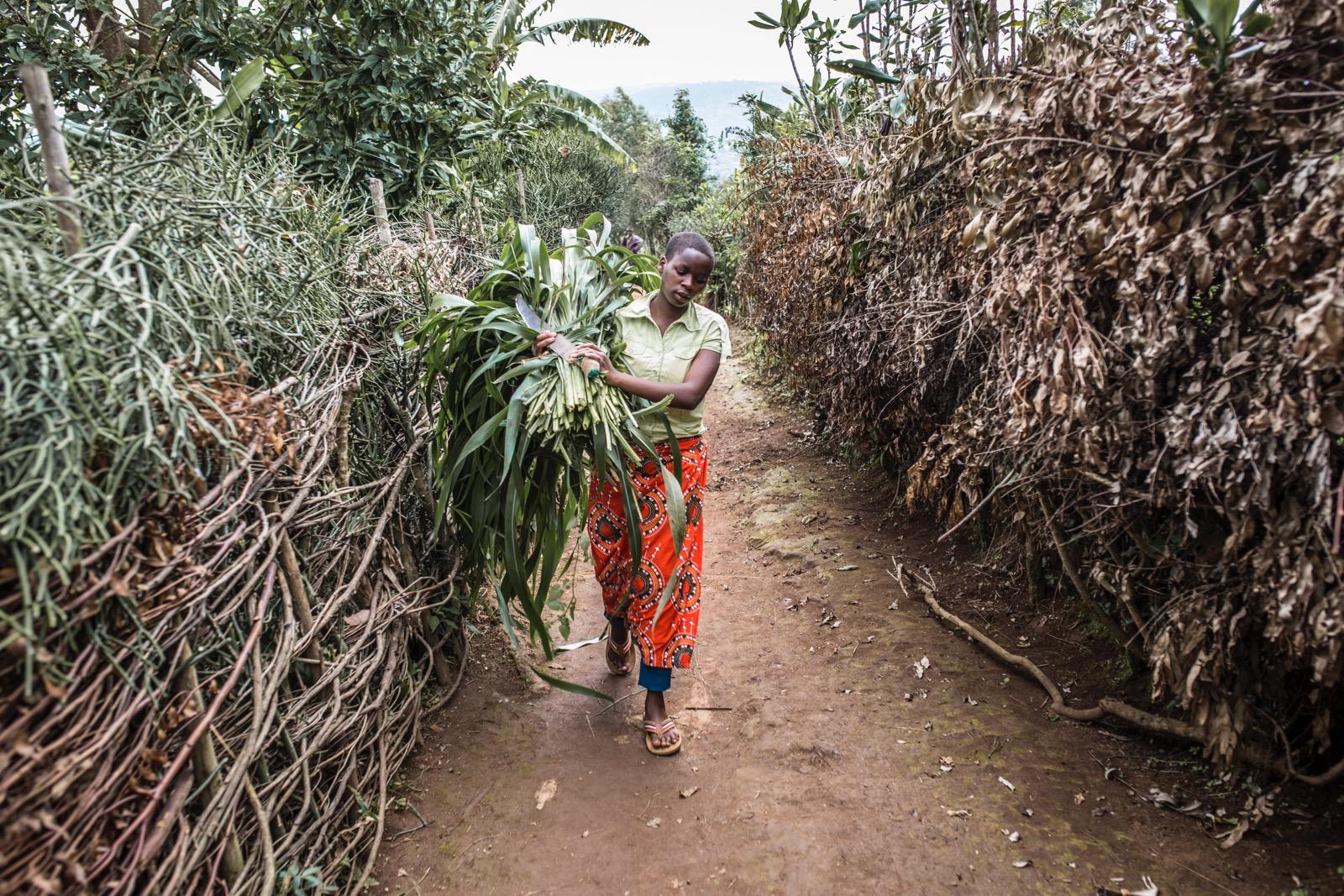
When Floriane is at home she helps out in the family’s little field and fetches water.
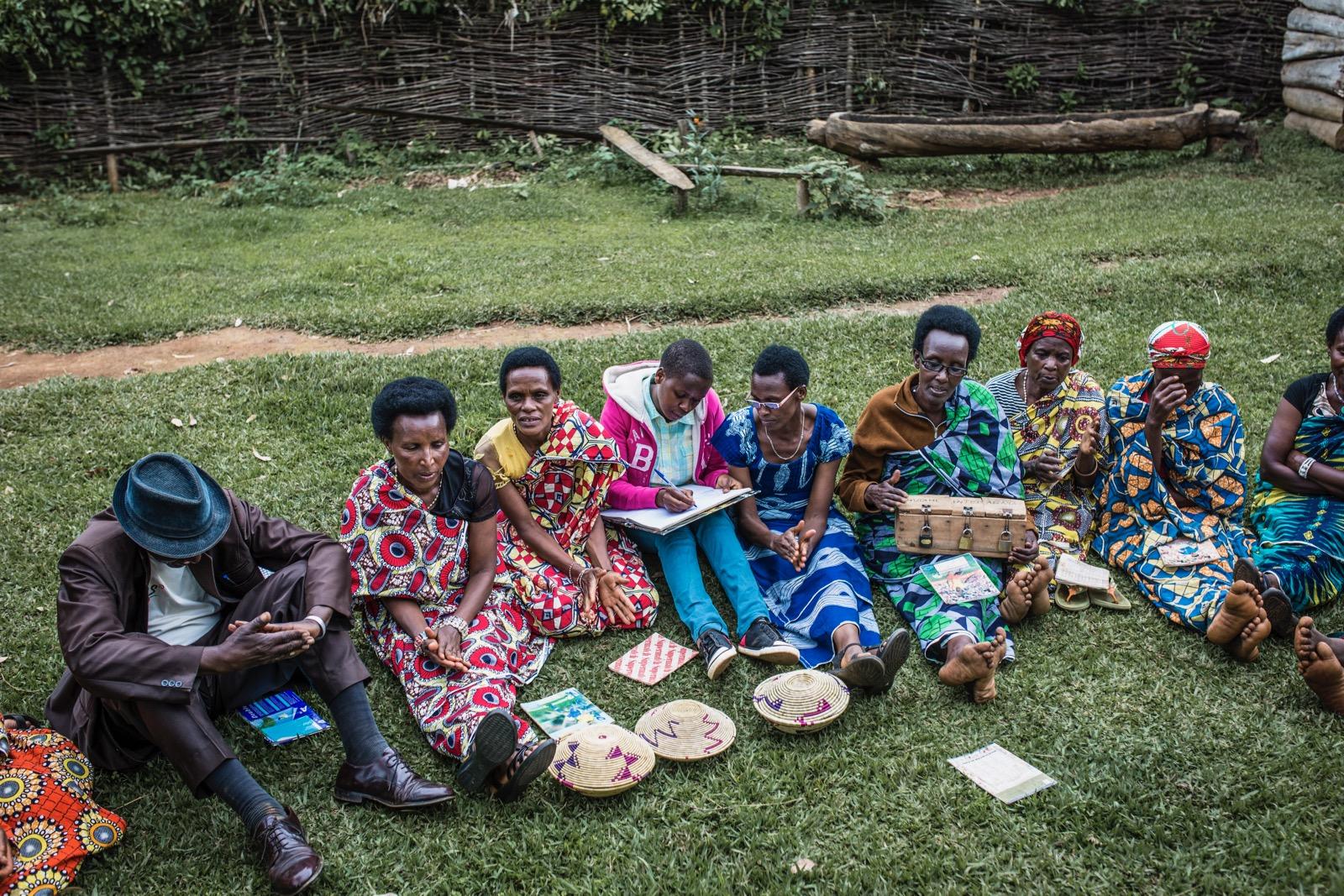

Three baskets offer help
The three baskets are filled with money when the solidarity group in Floriane’s home village hold their meetings. The money is then placed in three boxes, each with their own lock, in the wooden chest. Money from the locked boxes has helped Floriane’s family and enabled her to go to FVS Amade’s school ...In the middle of the lawn are three woven baskets and a wooden chest. 21 men and women dressed in smart clothes sit in a half circle around them. They are all members of the soli-darity group in Floriane’s home village. Floriane used to join in with the group’s meetings sometimes because she’s good at counting.
Floriane sits next to the cashier. Firstly they call out the names of everyone who has taken out a loan from the group’s funds; they have to pay interest on their loans by putting money in one of the baskets. The group applauds every time. Sometimes a member can’t put mo-ney in, so that person has to pay double next time.
Those who want to can also put money in another basket wich is for deposits. All the mem-bers of the solidarity group pay an annual membership fee, also called a deposit or share. When someone puts money in the other basket, that person is buying a larger share of the whole group’s total contribution. This means the whole group gains more money, or capital.The money from the three baskets is placed in the three boxes in the safe: one for interest payments and deposits, one for the fund for healthcare and other help for the villagers, and one for school uniforms and materials for the children.
Three keys
Those who can put a little money into a third basket, contributing to fund to pay for children’s school uniforms and school materials.Floriane notes everything down: who pays their interest and how much they’ve paid, who has bought a bigger share and for how much and who has put money into the fund for school material, and how much.
All the money is then placed in different boxes in the wooden chest, which is on the ground next to the baskets. Three keys are needed to open the three boxes in the chest.
The money paid in interest and deposits goes into the first box. A small portion of the depo-sits goes into the second box for a fund for healthcare or other help the members might need. The third box contains the money for school uniforms and school materials.
While Floriane notes everything down in the group’s cashbook, others note down the details in each member’s own cashbook. The members can use these to keep track of their investments during the year.
A member can apply for a loan for small business projects at any time during the year. At the end of the year, everyone who has paid their interest gets their investments back with a small profit.
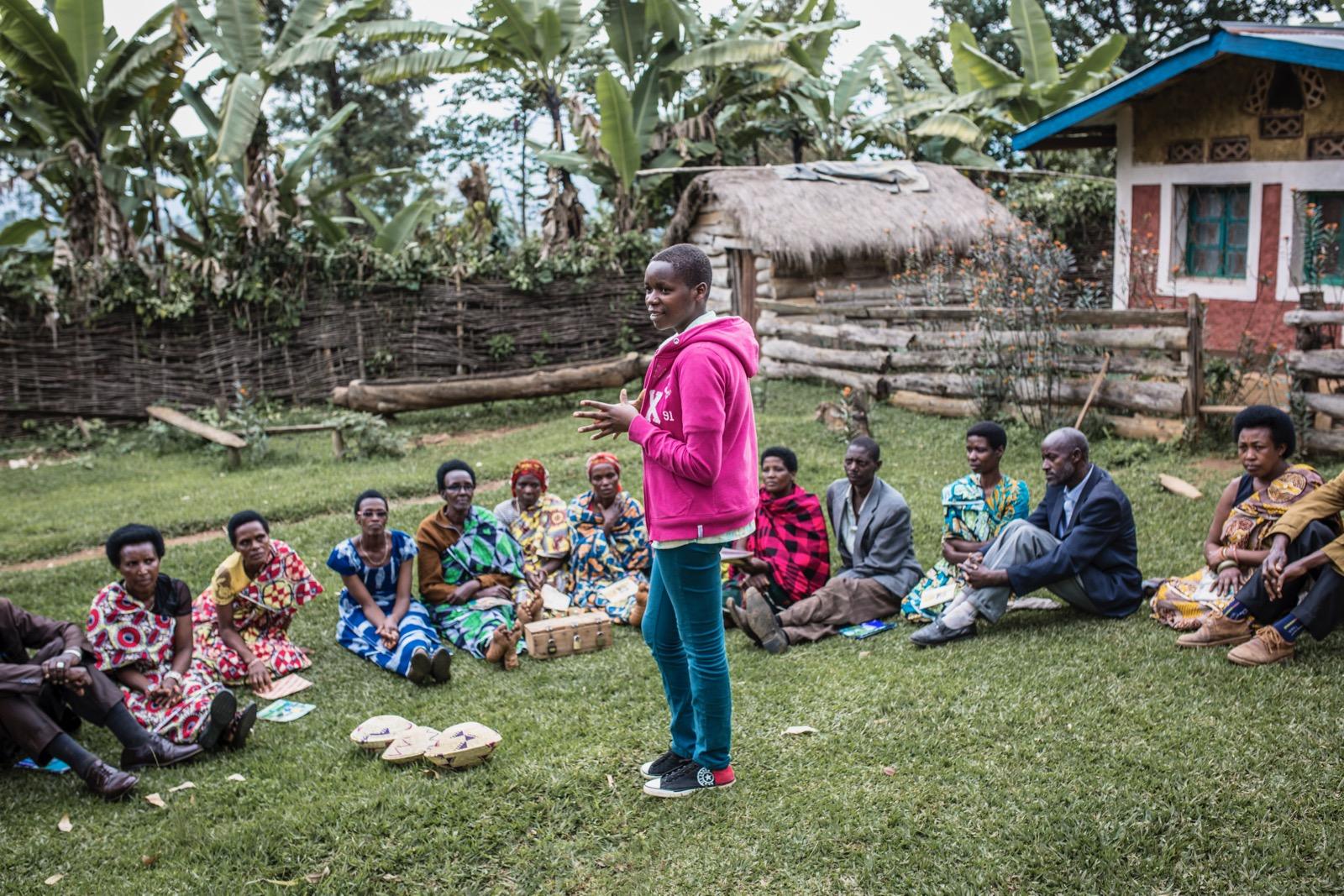
When she’s home from school, Floriane usually goes to the solidarity group meetings. The solidarity group in her village has also decided to help poor families that are not members of the group. "I don’t know how to thank you. You are like my parents and I hope you can help others like me in the future,” says Floriane to the village’s solidarity group.
Helping the village
The money for school materials is used every year at the start of school. The solidarity group buys school uniforms, pens and notebooks for all the children in the village.The solidarity group in Floriane’s village has decided to help more people than just its members. Floriane’s family is poor, so they have been given help to build a house. The group also helped Floriane get a place at FVS Amade’s school.
“I’m so grateful for your help. I don’t know how to thank you. You are like my parents and I hope you can help others like me in the future,” says Floriane when the meeting is over.
“We’re happy for your sake and that you have the chance to go on and do further studies. You’re always welcome here. You know that,” says the group’s chairwoman Christine.
Floriane has decided that when she’s finished university and started her own company or got a job at a bank, she’s going to help the people in her village. Because they’ve helped her.
Related stories
Långgatan 13, 647 30, Mariefred, Sweden
Phone: +46-159-129 00 • info@worldschildrensprize.org
© 2020 World’s Children’s Prize Foundation. All rights reserved. WORLD'S CHILDREN'S PRIZE®, the Foundation's logo, WORLD'S CHILDREN'S PRIZE FOR THE RIGHTS OF THE CHILD®, WORLD'S CHILDREN'S PARLIAMENT®, WORLD'S CHILDREN'S OMBUDSMAN®, WORLD'S CHILDREN'S PRESS CONFERENCE® and YOU ME EQUAL RIGHTS are service marks of the Foundation.



